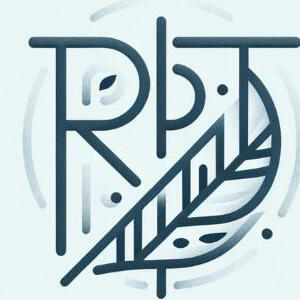
Rice Purity Test Tool
What is the Rice Purity Test?The Rice Purity Test originated in the 1930s as a simple icebreaker for new students at Rice University. Over time, it evolved into a 100-question survey designed to gauge participants' experiences with drugs, alcohol, and sexual activities. Respondents answer "yes" or "no" to each question, with their score reflecting the number of affirmative responses.
The test covers a wide range of behaviors, from relatively innocuous activities to more taboo subjects. A high score suggests a lack of exposure to certain experiences, while a low score indicates a greater degree of experimentation or adventurousness.
Despite its age, the Rice Purity Test remains popular, particularly among younger generations. Platforms like TikTok have facilitated its resurgence, with users eagerly sharing their scores and engaging in discussions about their experiences. While some of the test's content may seem outdated or controversial, its enduring appeal speaks to its ability to spark conversation and introspection among participants.How Accurate is the Test?The accuracy of the Rice Purity Test in gauging a fulfilled life is highly subjective. While it may provide insights into one's experiences and choices, it's not a definitive measure of personal fulfillment or happiness.
The test primarily focuses on cataloging a range of behaviors and experiences, often associated with youth culture and societal norms. However, it doesn't account for individual values, goals, or cultural backgrounds, which play significant roles in shaping life satisfaction.
Moreover, the test's reliance on self-reporting means that its results may not always reflect reality. There's no mechanism in place to verify the authenticity of respondents' answers, allowing for the possibility of deliberate misinformation.
Ultimately, placing too much emphasis on a test like this risks prioritizing peer approval over personal integrity and authenticity. It's essential to make decisions that align with your values and aspirations, rather than succumbing to societal pressures or chasing fleeting notions of "coolness."
In essence, the test can serve as a conversation starter or a source of reflection, but it shouldn't dictate or define one's sense of fulfillment or self-worth. It's crucial to prioritize genuine self-discovery and empowerment over conforming to external expectations or trends.Rice Purity Test & Its UsageThe Rice Purity Test can be utilized in various ways, offering opportunities for social interaction, understanding, and entertainment. Here's a detailed breakdown of its potential uses:
Social Bonding: Taking the Rice Purity Test with friends or acquaintances can serve as a bonding activity. Sharing and discussing responses can reveal commonalities and differences in experiences, fostering deeper connections and understanding among participants.Orientation and Counseling: Parents, medical professionals, or educators can use the Rice Purity Test to gain insights into individuals they are counseling or guiding. By analyzing scores and responses, they can better understand their child's, patient's, or student's experiences and concerns, facilitating more effective guidance and support.Entertainment: Many people engage with the Rice Purity Test purely for entertainment purposes. The test's wide-ranging questions, based on real-life experiences, can evoke laughter and amusement as participants reflect on past experiences or imagine hypothetical scenarios. It serves as a lighthearted game, providing an opportunity for laughter and camaraderie among participants.
In essence, the Rice Purity Test offers a versatile platform for social interaction, insight, and enjoyment. Whether used for bonding, counseling, or entertainment, it serves as a tool for fostering connections and understanding among individuals in various contexts.
Website: https://ricepuritytesttool.com/